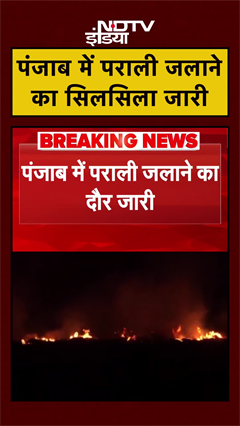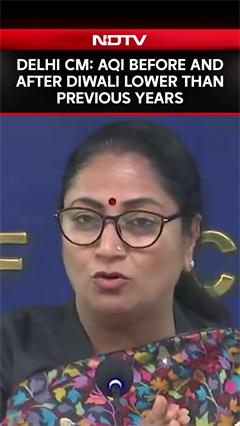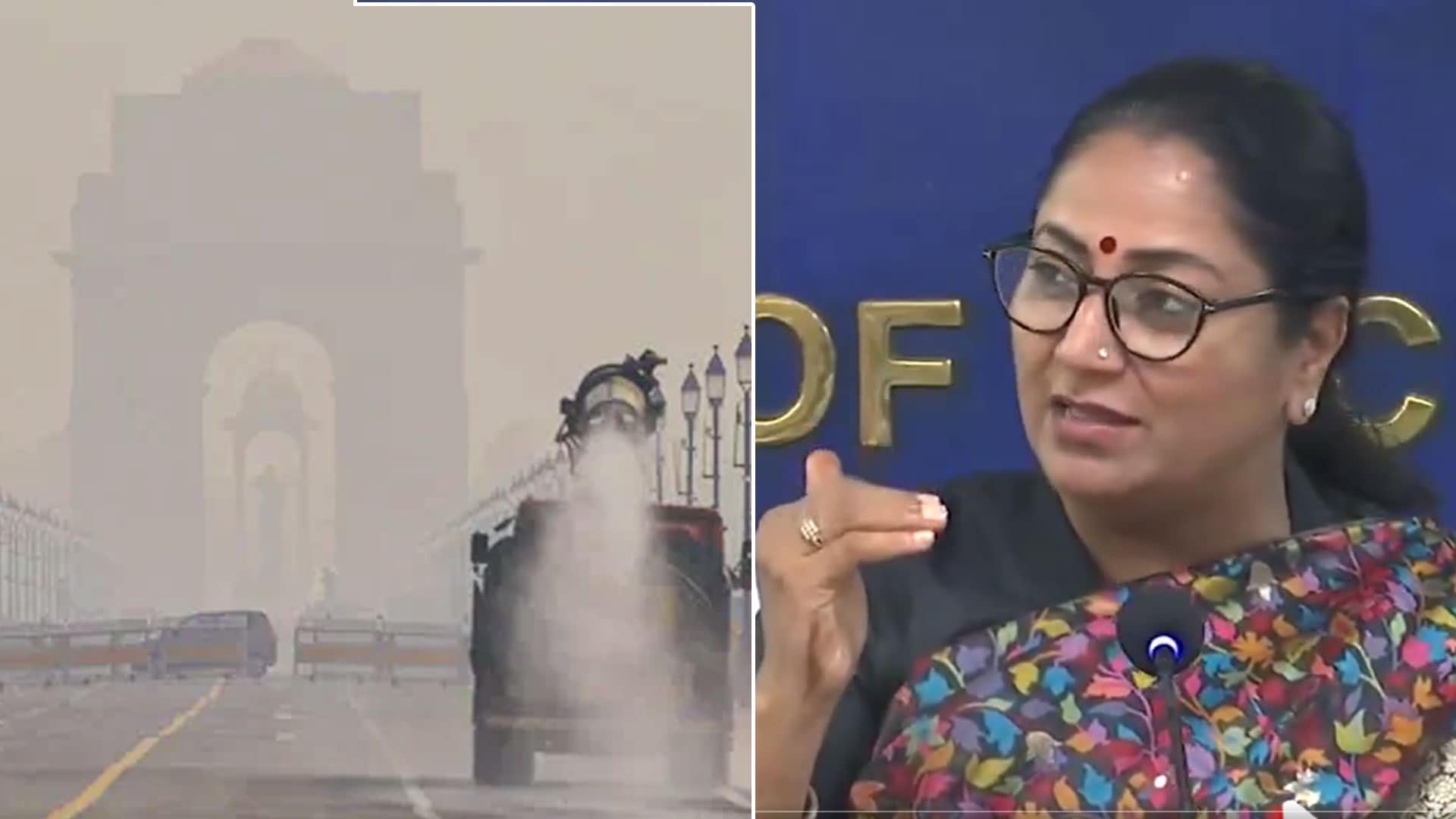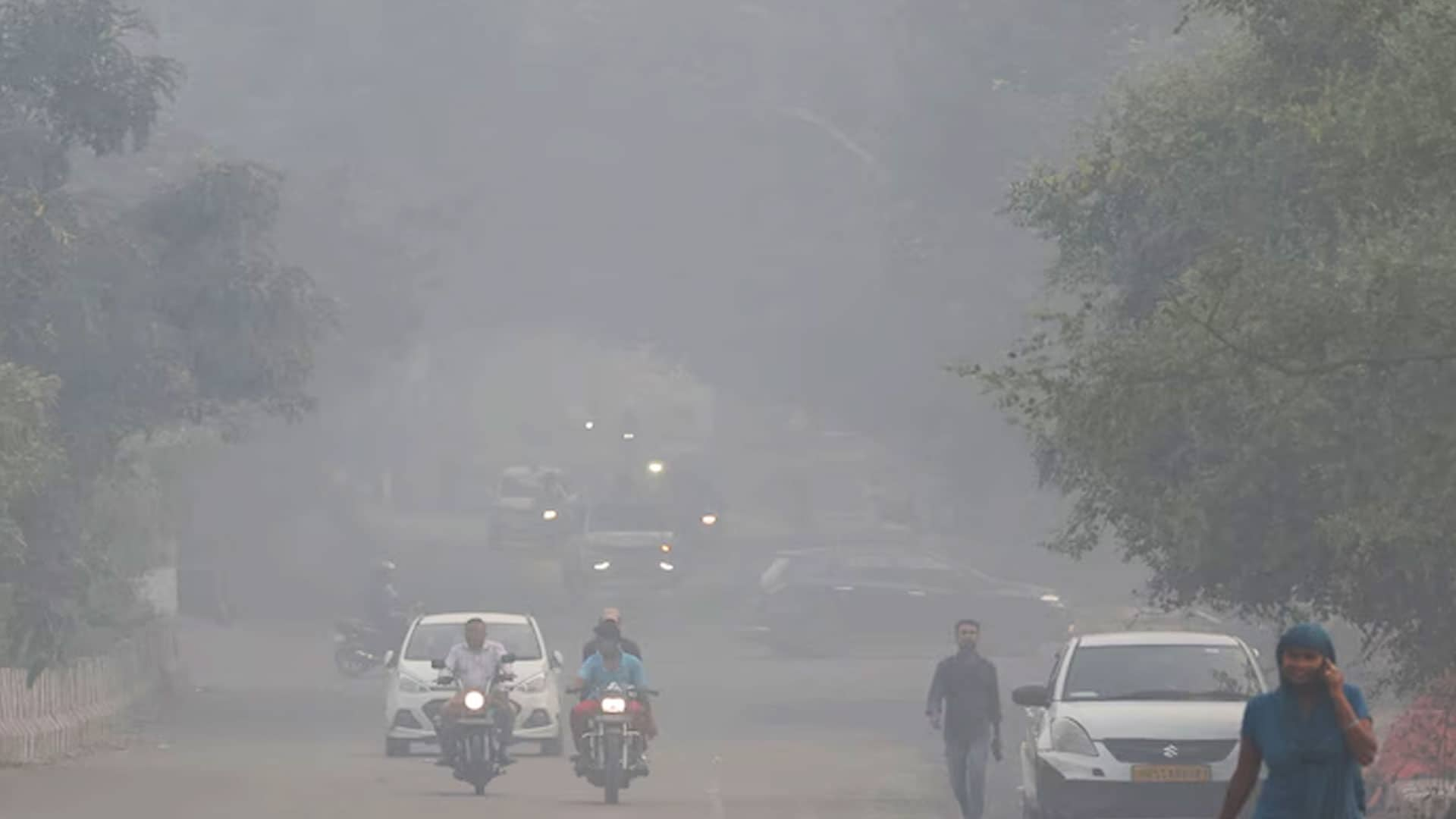- Home/
- As Delhi's Air Quality Worsens, Construction, Demolition Activities Banned
As Delhi's Air Quality Worsens, Construction, Demolition Activities Banned
Amid worsening pollution levels in Delhi, the Centre's air quality panel Saturday directed authorities in the National Capital Region to implement curbs such as a ban on construction and demolition activities under the Graded Response Action Plan stage III.
The restrictions will not be applicable to essential projects concerning national security, defence, railways, and metro rail among others. Mining activities will also not be allowed in the region.
The Commission for Air Quality Management (CAQM) further said states might impose restrictions on the movement of BS III petrol and BS IV diesel four-wheelers in the NCR considering the worsening air quality. This direction is non-binding on authorities.
The ban on construction activities is likely to affect housing projects in Noida, Ghaziabad, Gurugram, and other areas.
Delhi's 24-hour average air quality index stood at 397 at 4 pm, the worst since January. It was 354 on Thursday, 271 on Wednesday, 302 on Tuesday, and 312 on Monday (Diwali).
GRAP is a set of anti-air pollution measures followed in the capital and its vicinity according to the severity of the situation.
It classifies the air quality in the Delhi-NCR under four different stages: Stage I - 'Poor' (AQI 201-300); Stage II - 'Very Poor' (AQI 301-400); Stage III - 'Severe' (AQI 401-450); and Stage IV - 'Severe Plus' (AQI >450).
At an emergency meeting on Saturday evening, the sub-committee of the commission noted that due to unfavourable meteorological conditions and a sudden spike in incidents of farm fire, "it is considered necessary to implement Stage III of GRAP with immediate effect in the entire NCR''.
Under stage III, the authorities have been asked to enforce a strict ban on construction and demolition activities in the NCR, except for essential projects and non-polluting activities such as plumbing, carpentry, interior decoration, and electrical works.
The ban on construction and demolition activities covers earthwork for excavation, boring, and drilling; fabrication and welding operations; loading and unloading of construction material; transfer of raw material, including fly ash, either manually or through conveyor belts and vehicular movement on unpaved roads.
It also bans the operation of batching plants; laying of sewer lines, waterlines, drainage work, and electric cabling through open trench system; cutting and fixing of tiles, stones, and other flooring materials; grinding activities; piling work; waterproofing work; road construction and repair works, including paving of sidewalks, pathways and central verges among others.
Brick kilns, hot mix plants and stone crushers not operating on clean fuels, and mining and associated activities in the NCR have also been banned.
The NCR authorities have also been asked to close down industries not running on approved fuels in industrial areas having PNG infrastructure and supply.
In industrial areas not having PNG infrastructure and supply, industries not using approved fuels can operate only for five days a week.
"Paper and pulp processing, distilleries and captive thermal power plants to remain inoperative on Saturdays and Sundays. Paddy/rice processing units to remain inoperative on Mondays and Tuesdays. Textile/garments and apparels including dyeing processes to remain inoperative on Wednesdays and Thursdays. Other industries not falling in the above noted categories to remain inoperative on Fridays and Saturdays," the CAQM order read.
However, milk and dairy units and those involved in manufacturing of life-saving medical equipment, drugs and medicines have been exempt from the restrictions.
The measures are in addition to the restrictive action already in force under stage I and stage II of GRAP.
Calm winds are predicted in the coming days and the wind direction is likely to change frequently. Thus, there is a high likelihood of the pollutants getting trapped in the region and not getting dispersed effectively, the commission noted.
(Except for the headline, this story has not been edited by NDTV staff and is published from a syndicated feed.)
Latest Stories
- Press Trust of India | Thursday October 23, 2025
Pollution level in Mumbai has spiked sharply, making October the most polluted month of the year so far, according to an analysis done by an independent research organisation.
- Press Trust of India | Thursday October 23, 2025
Delhi's air quality showed a slight improvement on Thursday but remained in the "very poor" category for the fourth consecutive day, aided by stronger surface winds that helped disperse pollutants.
- Written by Manya Singh | Thursday October 23, 2025
For healthy adults, a sore or scratchy throat after a heavy air-pollution day is usually temporary and improves in days with reduced exposure and simple self-care. Here are some easy hacks.
- Written by Shreya Goswami | Thursday October 23, 2025
An air purifier removes airborne contaminants, while a humidifier restores moisture. Understanding their distinct roles, and when to use one, both or none, can help you breathe easier and stay healthier through the season.
- Asian News International | Thursday October 23, 2025 , New Delhi
The Air Quality Index (AQI) in Delhi and its National Capital Region on Thursday morning remained under the "very poor" category with the Graded Response Action Plan (GRAP) II norms already in place.
................................ Advertisement ................................
Latest Videos
Opinion
Opinion | Why Indians Have Just Given Up On Air Pollution CrisisTanushree Ganguly
Friday December 20, 2024While some may argue that people in Delhi are now more aware of air pollution than they were a decade back, my rebuttal would be that awareness does not mean that people are concerned.
Opinion | You Must Outrage Over Filthy Air More Than Once A YearJyoti Pande Lavakare
Tuesday December 10, 2024Delhi welcomed us with monsoon rains and mangos. We were home. Fast forward a couple of years, in the winter of 2012, I found myself in denial about something other parents, mostly expats, were calling toxic air.
Opinion | Delhi's Air Pollution Situation Is Like A Bad MarriageNishtha Gautam
Friday November 22, 2024On a good day, such as today, the AQI reading in Delhi is 407. We are jubilant at the sickly sunshine trickling through the slightly dissipated smog. At least its not 1600.
दिवाली... पराली... सियासी जुगाली!Ashwini kumar
Monday November 18, 2024दिल्ली-एनसीआर में प्रदूषण का समाधान तो आज तक मिला नहीं. हर साल चिंतित होकर हम-आप सांसों की तकलीफ के साथ-साथ दिल और ब्लड प्रेशर के मरीज भी क्यों बनें?
घर में कैद बुजुर्ग और हांफते लोग, दिल्ली की सांसों में घुला ये कैसा रोग?Nidhi Kulpati
Friday November 08, 2024हमारी हवा जहरीली हो रही है. गुरुवार की शाम को जब मैं इस मुद्दे पर लिखने बैठी तो AQI लगातार 400 पार जाकर दम घोंट रहा था. बहुत लोगों को यह मामला बोरिंग लगे, लेकिन जब आप अपने साथ काम करने वालों को खांसते-हांफते देखते-सुनते हैं, तो चिंता होने लगती है. सुबह उठते ही दरवाजे खिड़कियां खोलने के लिए डॉक्टर मना कर रहे हैं. बड़े बुजुर्गों के लिए तो मॉर्निंग वॉक बाहर की दुनिया से सीधे संपर्क का ज़रिया है, लेकिन डॉक्टर इसकी भी मनाही कर रहे हैं.


















